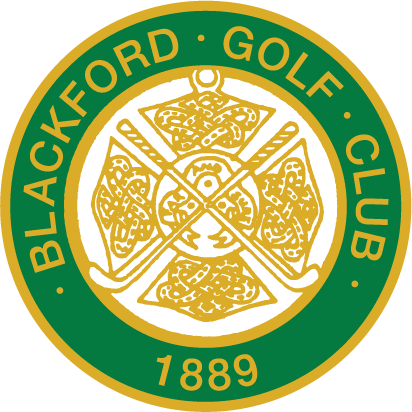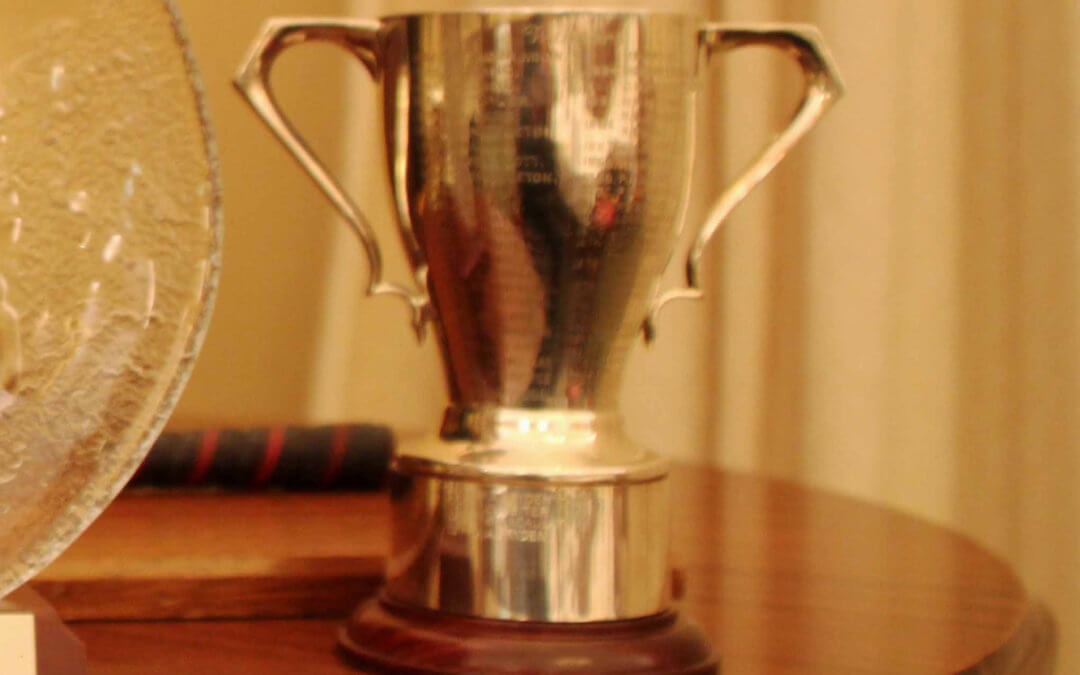History
In 1929, Mr T.R.Calder won the Majority Cup. In 1932, he served as Captain and decided, after demitting office, to donate, as his legacy to the club, a scratch trophy. His inspiration was the early club’s scratch charm award. Until 1921, each scratch winner at an outing became eligible for that year’s Scratch Charm. At the end of the season, the eligible players competed against each other, over a suitable venue, with the winner claiming the charm.
Ex-Captain Calder introduced the idea that each competition scratch winner during the season would gain one point towards his Cup. The player with the most points at season end would win the Cup, obviating the need to arrange a play off . A snag with this simple aggregation soon emerged, as, in 1933, two members were tied on equal points and a play off was necessary, the very problem the system was meant to prevent. Play offs between two players were not too difficult to arrange but when, in both 1956 and 1958, there was a triple tie, and it proved impossible to arrange a play off , meaning no clear winner emerged, it was felt that change was necessary. The change was to award two points for the best score and one for runner up. It was a system that prevailed until fairly recently when it was refined. Currently, players gain three, two or one points for each first, second or third place. Theoretically it means that one good round might win the Cup but it does encourage prospective winners to attend more outings. A tie may still occur, but not so often.
Jack Lang was one of Blackford’s best ever golfers. He was selected for the 1930 Walker Cup side but unfortunately was not chosen to play. He joined the club in 1931 and it is not surprising that he won the Calder in 1933, 1934 and 1936. Amateur commitments and the war curtailed his golf with Blackford but he accepted the Captaincy in 1956. Thereafter he played more with the club and duly won the Cup again in 1957, 58 (tied) and 1960. Although that was to be his last victory, he remained an active member and was made an Honorary Member in 1976. The span of 27 years between his first win and last is one of the longest in any of the competitions.
In the fifties and sixties a great rivalry developed between Ian Dougal and Peter Bryce. From 1950 to 1963 Ian won the trophy six times, sharing one victory with his rival. Peter, from 1954 until 1971, won eight times, sharing once with Ian and once with Jack Lang. Ian Dougal was Captain in 1962 but had to wait until the pressure of captaincy was off, before winning his last Calder, in 1963. In 1968 Peter was Captain and managed to win the trophy. He was the first Captain, since W.H. Taylor, in 1935, to do so. Since then, only two Captains have won the Calder Cup in their year of office. The first was Hugh Neilson in 1985, who, despite the points system, was part of a 4 way tie. The second was Tom Mitchell in 2001, who won his outright.
For four consecutive years, 1968 to 1971, it was a Peter who won the Calder Cup. In 1968, 1969 and 1971 it was Peter Bryce who won. In 1970 it was Peter Younie. 1970 was Peter Younie’s first win, but it was not his last. In the period up to 1987, he either won outright, or shared, the trophy a further nine times. His record of ten victories is the best performance in the Calder, or any other trophy. Even discounting the three years when he tied, Peter Younie’s record of seven outright wins surpasses that of any other winner, before him, or since.Since the Centenary there has been no dominance of the Calder Cup to match that of Lang, Dougal, Bryce and Younie. Of the 26 winners recorded from 1990 to date (2015), there are 17 different names. Eleven are single winners, four have won twice, this author three times and David Macaulay four times.
The Calder cup is awarded to the member who achieves the best consistency in terms of scratch scores over the outings in the year. At each outing, the best scratch score is awarded 3 points with 2 points and 1 point being awarded to the second and third best respectively. At the end of the season, the member with the most points will be awarded the trophy. Thus, by attending all outings, members have a better chance of accumulating points and winning the trophy.
Winners:
2012 Duncan Cursiter
2013 David Macaulay
2014 Martin Bryden
2015 David Thomson

